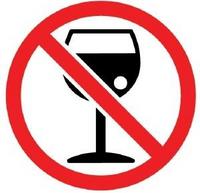NUTRITIONAL GUIDELINES
Basically there are six suggested recommendations for an improved U.K. typical diet. However, not all of them are mentioned in each set of the different proposed guidelines:

-
To consume the quantity of food and drink which will help you to reach and then maintain an optimal body weight i.e. one within a given ideal range for your height.
If weight loss is required most medical experts believe that greater emphasis should be placed on taking more exercise, which will increase your energy (kilocalorie) expenditure. This is preferable to just decreasing food and drink consumption. The aim is to prevent overweight and obesity which can increase your predisposition to other conditions. -
To reduce fat intake from all sources
 All major dietary guidelines advocate a need for a reduction in the average total fat consumption. Fat presently provides 38% of our daily energy (kilocalorie) intake. The NACNE paper would like this to be decreased to 30% over 15 years whereas the COMA report recommends a fall to 35% now. Some reports also suggest that we should eat less saturated fat. This may decrease our likelihood of developing an early "potential risk factor" for heart disease (saturated fat is generally hard at room temperature and is usually of animal origin). However, by decreasing total dietary fat, all types of fat (including saturated) are likely to be consumed in smaller quantities.
All major dietary guidelines advocate a need for a reduction in the average total fat consumption. Fat presently provides 38% of our daily energy (kilocalorie) intake. The NACNE paper would like this to be decreased to 30% over 15 years whereas the COMA report recommends a fall to 35% now. Some reports also suggest that we should eat less saturated fat. This may decrease our likelihood of developing an early "potential risk factor" for heart disease (saturated fat is generally hard at room temperature and is usually of animal origin). However, by decreasing total dietary fat, all types of fat (including saturated) are likely to be consumed in smaller quantities.
Cholesterol is a type of fat over which there has been much debate and, although much research has been done, no conclusive evidence has evolved, relating its consumption to the increased risk of heart disease and associated disorders in the ordinary individual. For this reason cholesterol is generally not a key feature for U.K. dietary advice. Likewise no specific recommendation is made for poly-unsaturated fat (poly-unsaturated fat is normally liquid at room temperatures and most frequently found in vegetable oils). It may be beneficial to replace some saturated fats with poly-unsaturated fats, as in cooking oils and margarines but no undisputed proof exists either way.
-
Preferably decrease sugar (sucrose) intake to nearly 50%
For our health it is considered desirable that we do not consume any more sucrose than presently and it would be preferable for most of us to lower our sugar intake, especially that in "between meal" snacks, sweetened soft drinks and confectionery.
On average we eat 104g (4oz) sucrose per person per day. NACNE would consider a healthy diet should aim for 55g (2oz) per day. (More details will be available in a forthcoming sugar leaflet.) -
To increase dietary fibre (roughage) from 20g per day to an average 25-30g per day by eating more whole grain cereals but also more fruit and vegetables.
-
To eat less salt
A little less salt would do the majority of us no harm. On average we consume 12g per day and, in this climate, it is believed that we need no more than 3-5g. Those doing hard manual labour or individuals frequently participating in strenuous exercise, where excessive perspiration occurs, may need slightly more than the ordinary individual but still less than 12g. -
To reduce alcohol consumption to moderation
 Alcohol consumption is closely associated with economic factors and it is thought that a small quantity may in fact be beneficial, but heavy drinkers are advised to cut down to aim for an average intake of 4% of energy (kilocalo-ries) per day from alcohol. This relates to approx. 1 pint of beer, 2 spirit, measures or 2 glasses of wine.
Alcohol consumption is closely associated with economic factors and it is thought that a small quantity may in fact be beneficial, but heavy drinkers are advised to cut down to aim for an average intake of 4% of energy (kilocalo-ries) per day from alcohol. This relates to approx. 1 pint of beer, 2 spirit, measures or 2 glasses of wine.
Our present national protein intake is at the recommended level, however many of us would not suffer by decreasing our protein obtained from meat and fish and replacing it with the protein in vegetables, lentils, beans and other legumes, nuts and cereal products.
